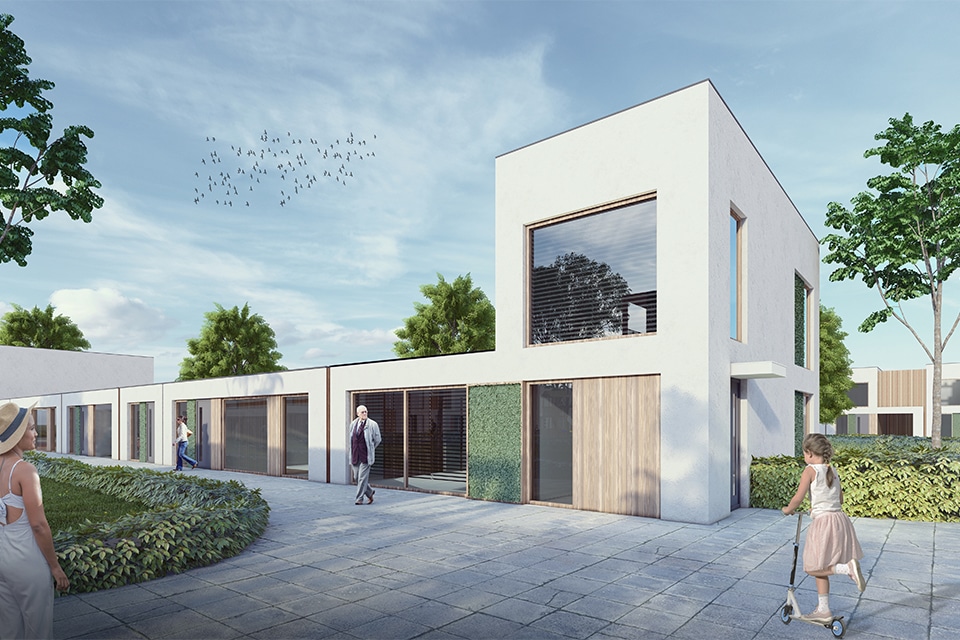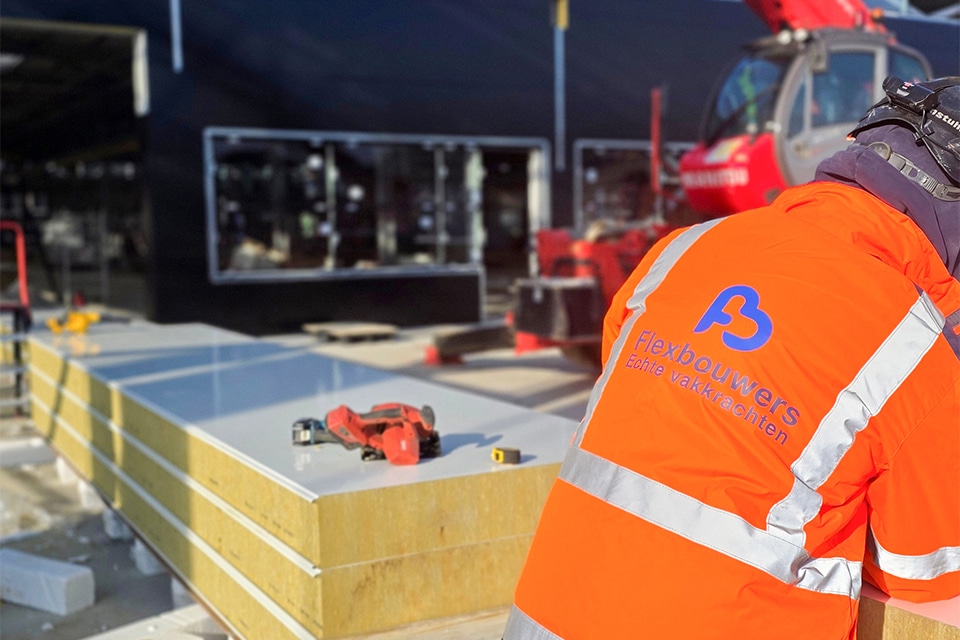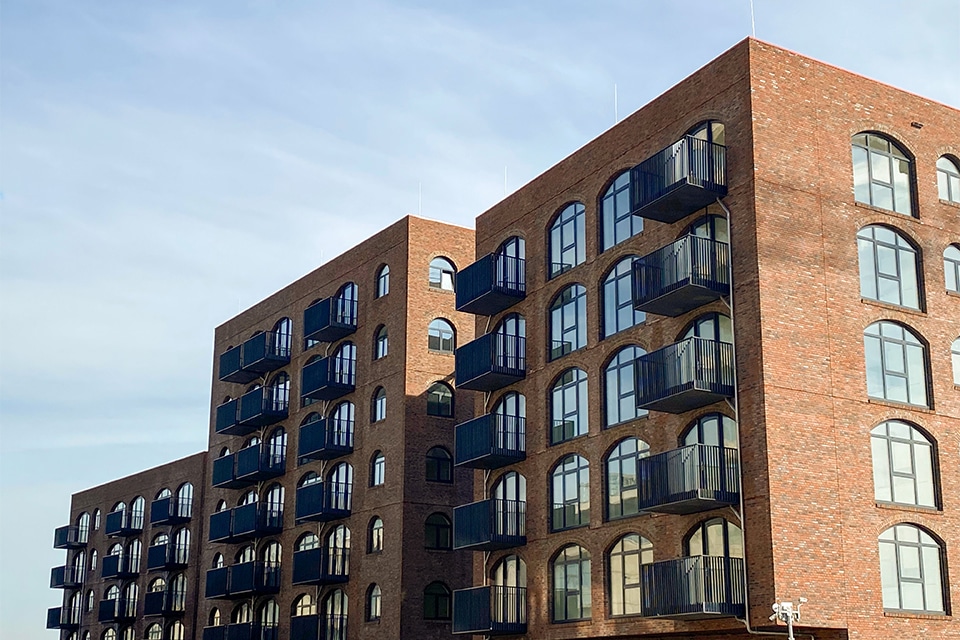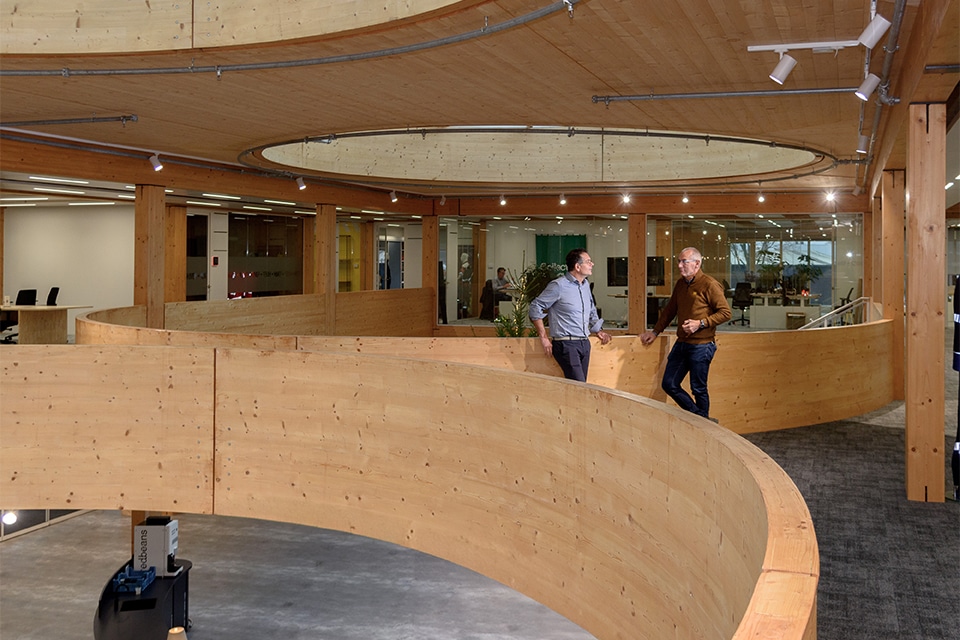
NO ROOF TO WASTE
Bitumen roofing specialist further expands its circular offering
Considerable CO2 reduction, high-quality processing of recycled content, a long lifespan, minimal maintenance costs and a significant reduction in indoor temperatures: our roofs have to meet increasingly stringent requirements. Derbigum is happy to go along with this. "The easiest way to reduce our ecological footprint is by maximizing the lifespan of our products," believes Atze Walsweer, Technical Manager at Derbigum. "But also by actively collecting bitumen and recycling it into new raw material, according to our philosophy of 'No Roof To Waste'. Following the example of our Derbigum NT bituminous top layer and Derbicoat NT underlayment, which contain 25-30% recycled content and can be recycled 100% at the end of their useful life, our Derbigum NT root resistant roofing membrane and Derbicolor NT roofing membrane are also perfectly in line with this."

Derbigum specializes in bitumen roofing for flat roofs. "At first glance, bitumen and ecology may seem to have little in common, yet there is a connection," Walsweer said. "Because although bitumen is a petroleum-based product, it is the most ecological solution for waterproofing flat roofs. Derbigum roofing membranes have a proven lifespan of more than 40 years. After that, they can easily be overlaid with an additional Derbigum NT bituminous top layer and thus face the next at least 40 years carefree. At the end of this long service life, the Derbigum roofing membranes integral and 100% can be recycled into a high-quality raw material for new roofing membranes: Derbitumen."
Full-fledged secondary raw material
Derbitumen is extracted from various residual and waste streams, Walsweer explains. Besides production residues and cutting residues, which we collect from our authorized processors via Derbigum big bags, we also collect suitable roofing material from demolition roofs. All residues and waste streams are carefully processed at our recycling plant in Perwez, Belgium, after which they are reused in our production as fully-fledged secondary raw materials. For example, for Derbigum NT; a bituminous roofing membrane based on New Technologies (NT), but with the familiar Derbigum quality. A recent quality check of the very first Derbigum NT roofing membranes, which have been installed since 2007, has shown that there is no difference in quality, both visually and at laboratory level, compared to our standard Derbigum SP roofing membranes."
Take-back guarantee
About 4,000 to 5,000 tons of bitumen are recycled per year at Derbigum's plant. "Our ambition is to expand this amount to 10,000 tons in the future," Walsweer said. "In order to have sufficient circular content, we offer a take-back guarantee with every Derbigum roof delivered."
CO2 reduction certificate
Because the extraction, processing and transport of new raw materials are cleverly overcome, Derbigum emits significantly less CO2 than other roofing specialists. "Exactly how big this saving is, we demonstrate per project in a CO2 reduction certificate. This makes it possible to include the CO2 reduction of roofs in a CO2 savings process, for example." The CO2 reduction calculation has been validated by PWC.
Low shadow cost
Derbigum NT is KOMO- and DuBokeur-certified and also included as a category 1 product in the National Environmental Database (NMD). "With a shadow cost (MKI) of only €0.54 per m2 per year, Derbigum NT also scores best in the Environmental Performance of Buildings (MPG)," said Walsweer. "The environmental impact is minimal. That also makes Derbigum NT very suitable for new construction projects."
Expanding the circular range
The Derbigum NT bituminous topcoat and Derbicoat NT undercoat consist of a minimum of 25-30% of recycled bitumen. Both products are fully incorporated into the sales and application process for both "regular" roofs and circular projects, Walsweer said. "During 2023, our circular product range will be further expanded. For example, our Derbigum root-resistant roofing material will also be added to the NT range. This roofing material, in which a significant percentage of recycled bitumen will be used, is suitable for sedum roofs (green roofs) or retention roofs (blue roofs), for example." In addition, the Derbicolor roofing membrane with mineral finish (shingle) will now also be produced on the basis of a significant proportion of recycled content.
Following Derbigum NT, Derbigum root resistant roofing and Derbicolor NT roofing membrane will also be added to the NMD. Derbigum is currently going through the Life Cycle Assessment (LCA) process for this.
Heeft u vragen over dit artikel, project of product?
Neem dan rechtstreeks contact op met Derbigum Netherlands B.V..
 Contact opnemen
Contact opnemen




